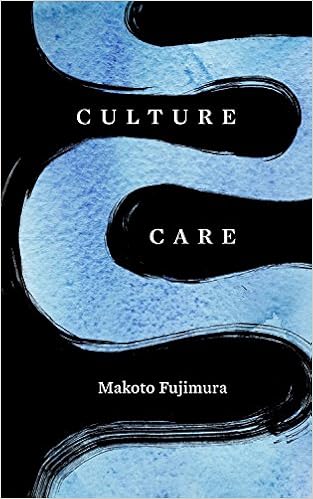As something of an arts pastor, but still not sure if that is the best label for the vocational calling on my life. I have a passion for artist of all stripes to grow both in their creative ability as well as their walk with Christ. As a result, I am always on the hunt for good books and good examples of artist to share with other artists. One of the individuals I have found in this quest is Makoto Fujimura. I have mentioned him before in this very blog. Mako was an elder at Redeemer Presbyterian in New York City, but he is currently head of the Brehm Center at Fuller Theological Seminary. If you do not recognize Redeemer Presbyterian, it is the home church of Tim Keller. Mako is blessed with a mediative mind that thinks deeply about faith and beauty. The Brehm Center is a think tank of sorts for Christianity and Culture. Mako’s latest book is called Culture Care. The book is good enough to simply share excerpts from and leave it at that. Because quite frankly, he says all that I would want to say in a far better way.
“Sociologist James Davison Hunter noted more than twenty years ago that participants in culture wars employ language that reduces the enemy to a caricature, portraying their ideas as not only false but pernicious, and alienating their humanity. Hunter identifies the culprit in Culture Wars (1991), arguing that a shared weakness “in both orthodox and progressive alliances” is “an implicit yet imperious disregard for the goal of a common life. This disregard for the “goal of a common life” is the abject faith of our times; but from this failure we can begin a new path toward Culture Care. Culture is not a territory to be won or lost but a resource we are called to steward with care. Culture is a garden to be cultivated.” Page 22
###
###
“There are thus significant overlaps for Culture Care not only with Creation care but with Soul Care, which is the spiritual development and psychological integration that can result when we diligently follow good guidance. The work of Soul Care, the work of both therapist and client, is extemporaneous. It cannot be linear but is rather interactive and creative process that responds on an ongoing basis to the shifting needs of the soul. All effective care providers are in this sense artists of the soul.” Page 27
“Culture care starts with the identification and articulation of brokenness. It creates safe space for troth-telling. But it does not stop there. It starts with listening and then invites people onward toward beauty, wholeness and healing. As we become able to acknowledge the truth of our situation and can tell that story, we are encouraged to move into caring for artists and all other participants in the culture, into creating contexts for deeper conversation, into fostering spiritual growth, and sometimes into problem solving.” Page 28

Artists of the soul ... like that!
ReplyDelete